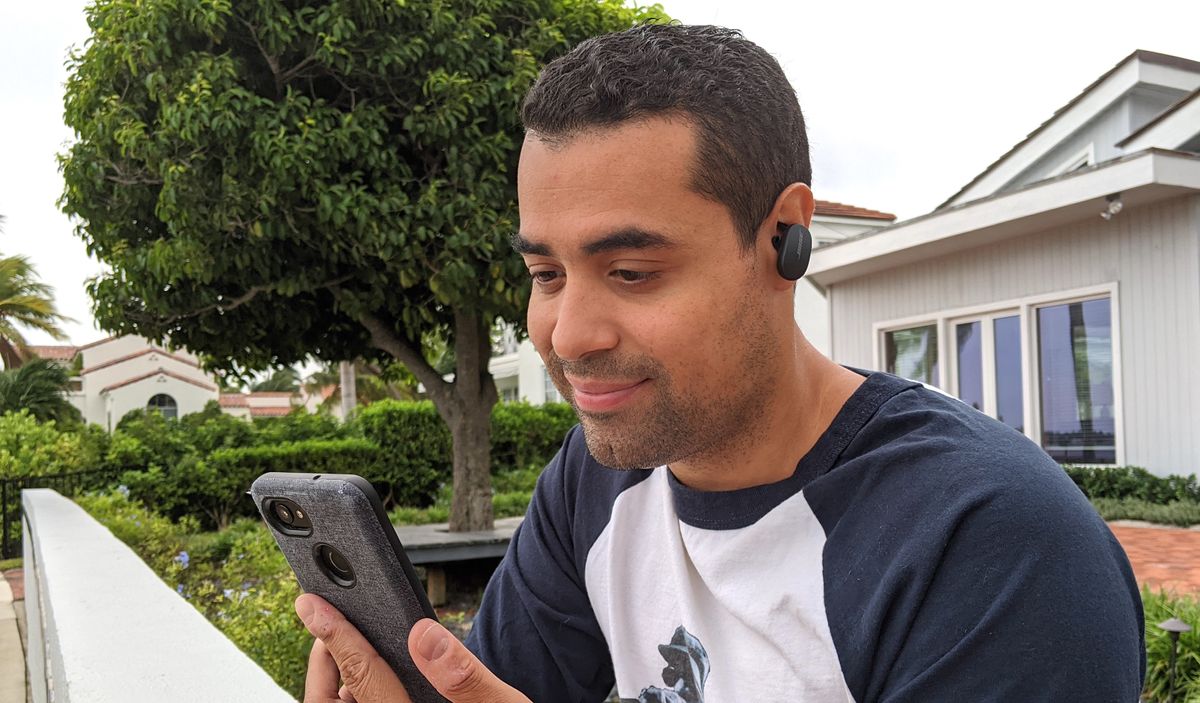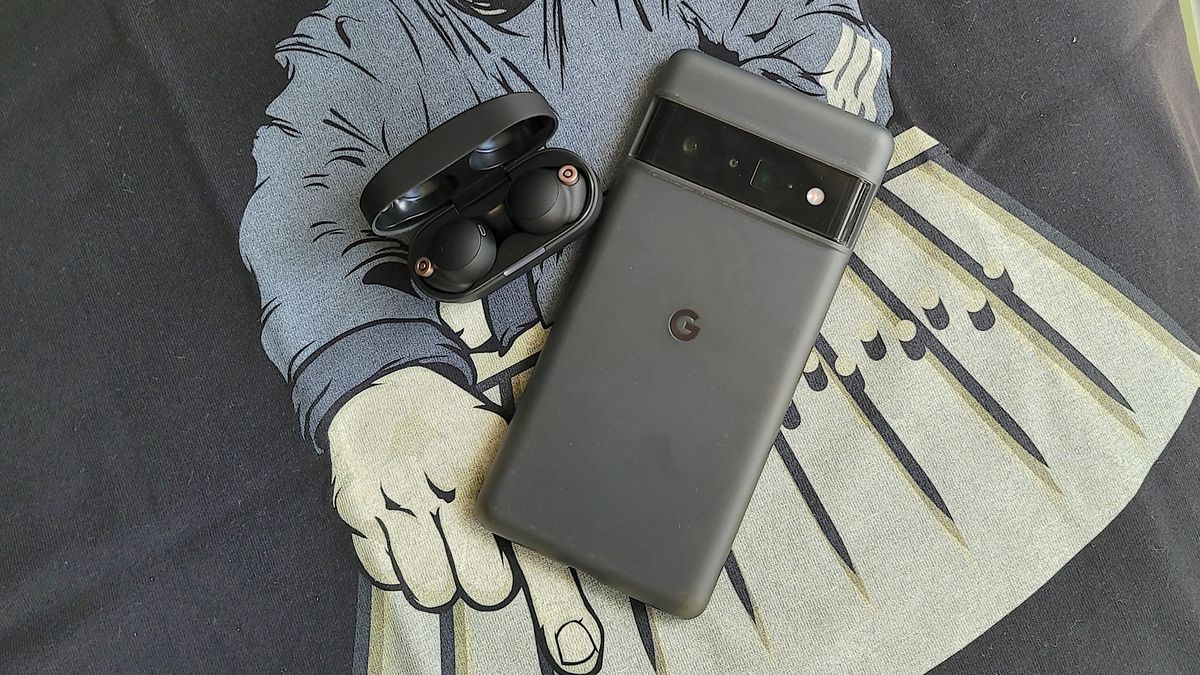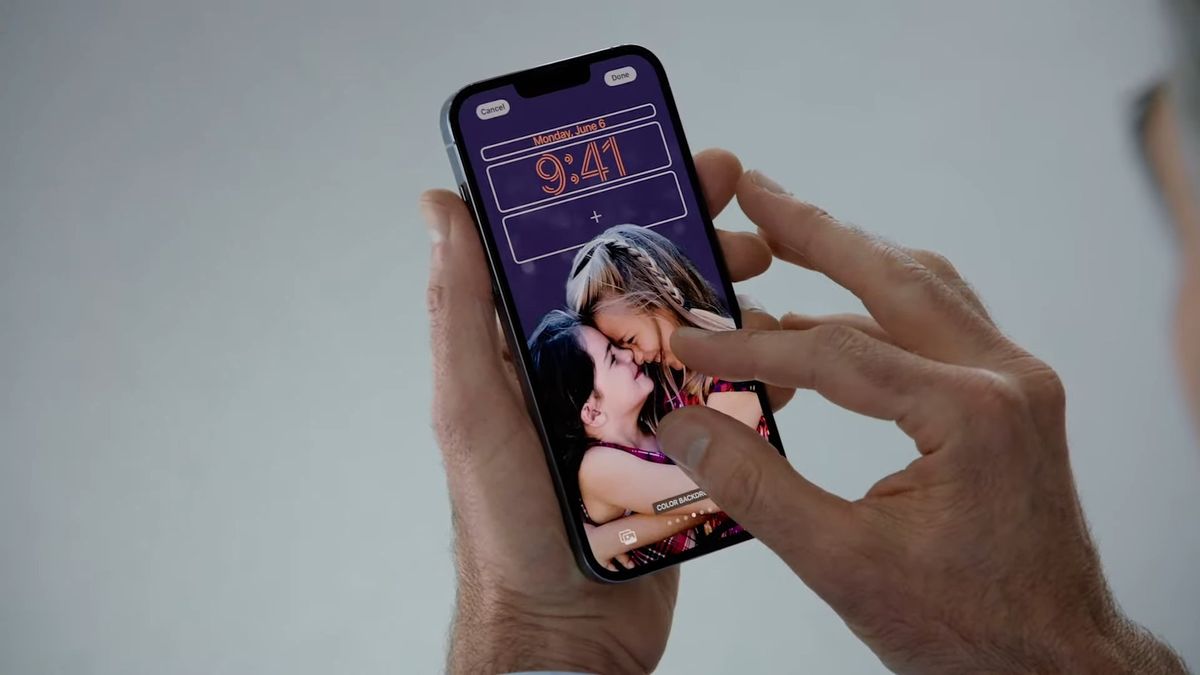The wireless audio category has come a long way. Bluetooth headsets first paved the way, granting us the freedom to answer calls hands-free on our cellular phones. Not long after, wired headphones let us communicate via in-line microphone. Then came wireless headphones and earbuds, which have revolutionized the way we connect with people over a mobile device and wi-fi network.
Some of the best headphones and earbuds for voice and video calls are created by audio industry staples. Bose has hit their mark with every major flagship release. The latest models from Jabra’s collection continue to uphold the brand’s prestige telecommunications legacy. Even computing giants like Microsoft have launched headphones designed to enhance video conferencing, which has become part of many people’s lives while working from home during the COVID-19 pandemic.
The options are endless, but unless you do the research or read the reviews, you could end up wasting money on a terrible calling device. Hence why we compiled this list of the best headphones and earbuds for voice and video calls, so you know exactly what to purchase before your next big Zoom meeting. Let’s take a look at what’s out there.
The best headphones and earbuds for voice and video calls you can buy today
Why you can trust Laptop Mag
Our expert reviewers spend hours testing and comparing products and services so you can choose the best for you. Find out more about how we test.
Nothing tops the Bose 700’s call quality. Eight microphones are stuffed underneath the hood: six for noise cancellation and two for amplifying vocals during calls. This helps creates the clearest-sounding calls ever experienced on a pair of headphones. ANC keeps ambient noise and wind to a minimum during listening sessions and calls. Unique features like Self Voice are clutch for hearing conversations fully when in rowdy areas. We’re also fond of the 700’s neutral sound and user-friendly control scheme, which consists of a responsive touch panel and voice assistance.
Battery life isn’t anything to write home about, but that has come to be expected from any Bose headphone. The good news is that you’ll at least have up to 20 hours of ANC use and talk time.
See our full Bose 700 review.
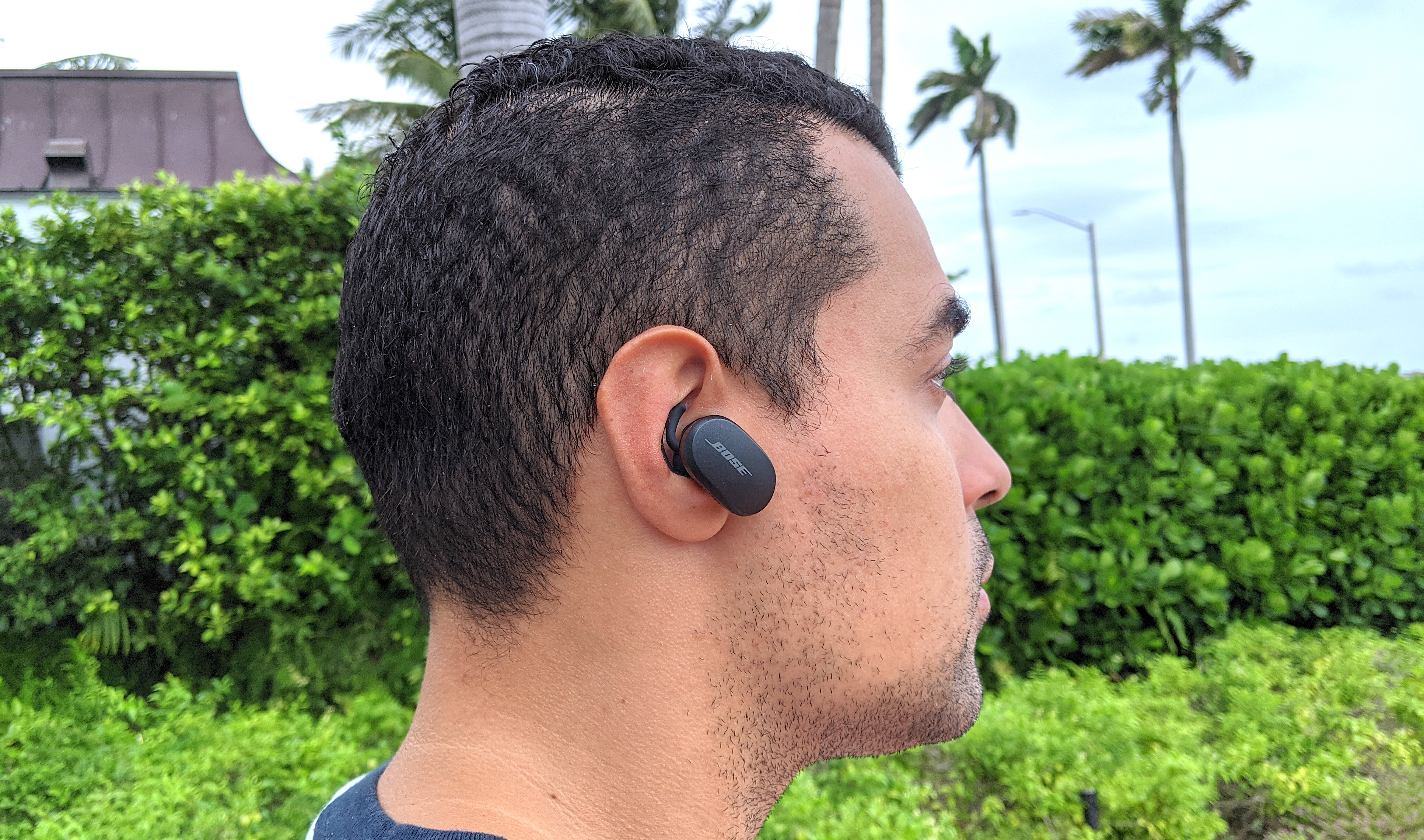
If you’re waiting on wireless earbuds that can match the ANC prowess found in premium headphones, then the QuietComfort Earbuds are the closest you’re going to get. Bose engineered its in-ears monitors with nearly the same functionality and technology as the Bose 700, giving you 10 levels of adjustable ANC and even a transparency mode that blends with noise cancellation for even better, more accurate ambient listening. You can expect peaceful silence when indulging in Spotify playlists around noisy crowds. Call quality is just as impressive, producing loud and clear-sounding results on both ends, especially indoors. It’s cool that you get Bluetooth 5.1 as well, a feature only a few models carry right now.
All of that power comes at a cost, and it’s not just the expensive MSRP we’re talking about here, but battery life as well. You’ll get about 5 hours of use when factoring in both listening modes and high volume, and the charging case only holds three extra charges, despite its massive build.
Read our full Bose QuietComfort Earbuds review.
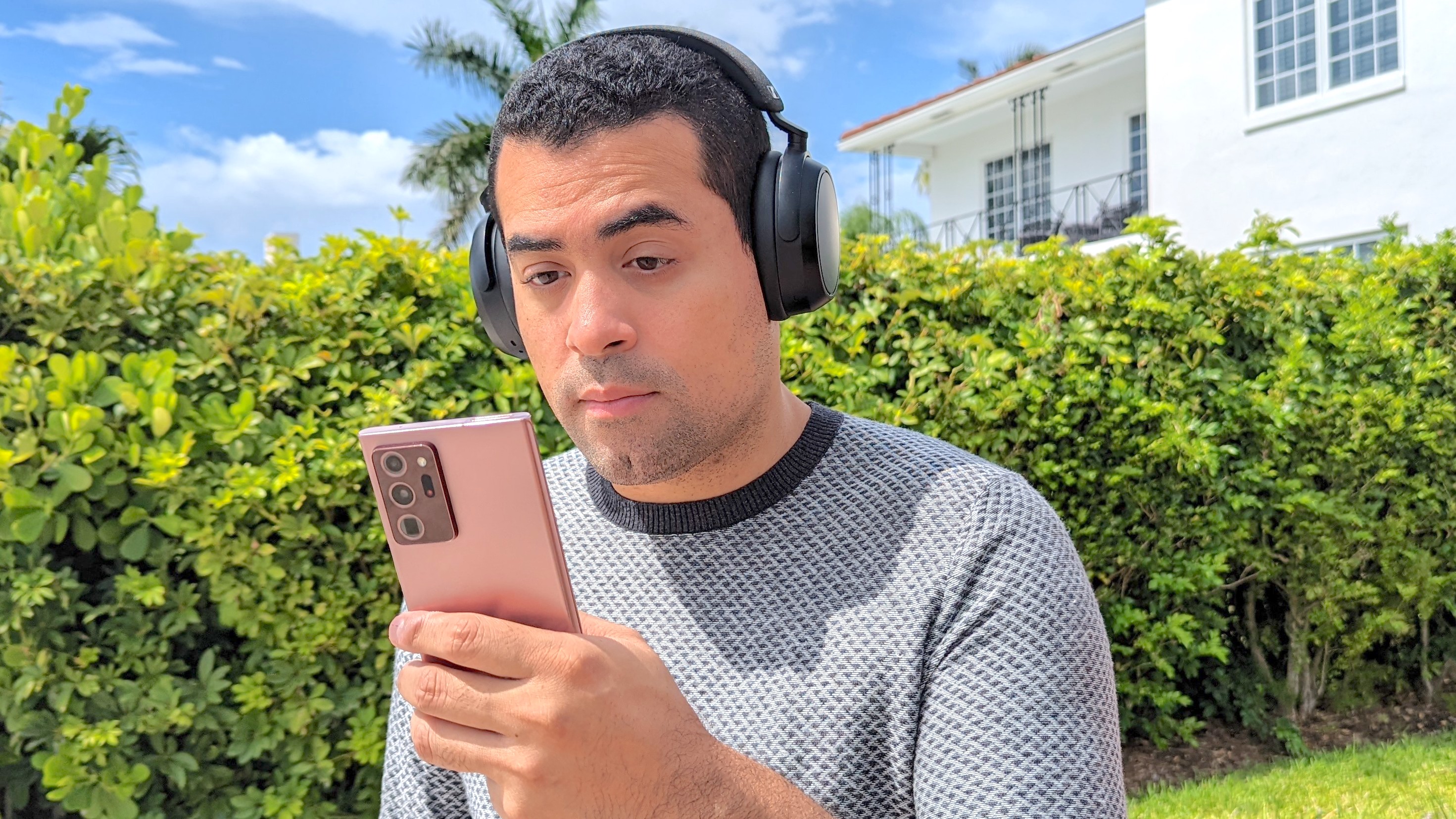
The Momentum 4 is the closest headphone model to the 700 in terms of call quality. Two beamforming microphones were installed on each earcup and do a fantastic job of blocking out constant noise during calls and video chats. Voices come through loud and clear on both ends, plus the headphones come with strong wind resistance to reduce whisking effects. Sennheiser even has a proprietary feature called Comfort Call that adds signal processing to the voice of callers on the opposite end and reduces listening fatigue. These are also some of the finest-sounding and longest-lasting headphones out there, generating up to 60 hours of ANC playtime on a full charge.
The controls could use some fixing, but they won’t interfere with your conversations.
Read our full Sennheiser Momentum 4 review.
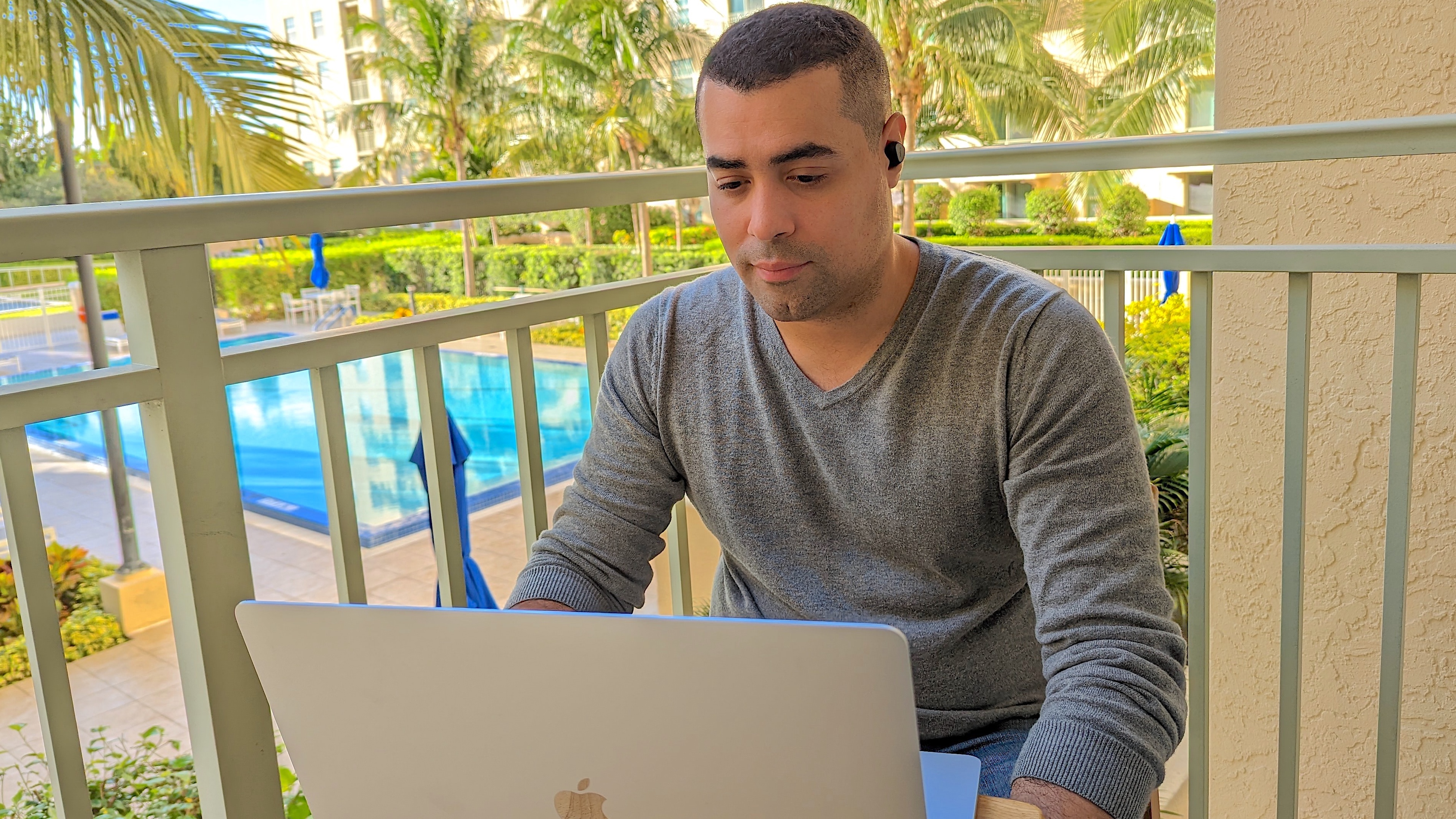
The Connect 5T is a return to form for the company that established its legacy in the Bluetooth headset game nearly two decades ago. Yes, it bears the exact same appearance and much of the same architecture as the Elite 5, but this is the better overall performer, especially for video calls. Jabra’s six-mic array demonstrates great voice capture and intelligibility, allowing for clear-sounding conversations and even better voice assistance (e.g., Siri, Google Assistant, Bixby). Features like Call Experience let you adjust how loud you sound on calls and enable auto-answer or mute through wear detection. Sound is engaging and bonuses like the sleek wireless charging pad make for nice desk décor.
ANC isn’t as good as it is on other Jabra models, plus certain flagship features should have been included for the price. However, it’s possible a big firmware update could fix these issues.
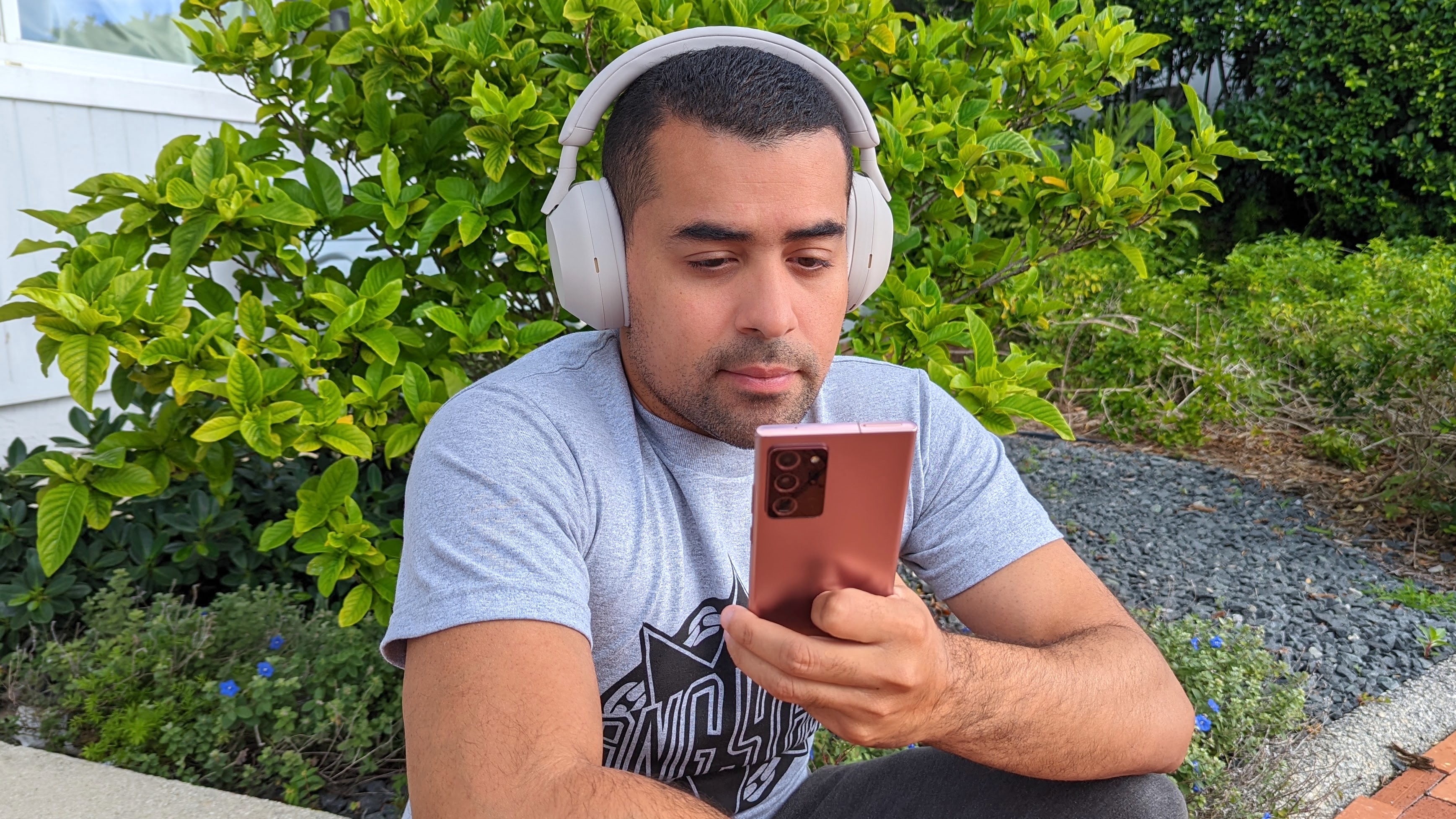
Previous entries in the Sony Mark series are considered some of the worst calling headsets. Thankfully, the WH-1000XM5 does a complete 180 and delivers magnificent call quality that is no longer bogged down by poor mic performance and weak wind resistance. Strong noise cancellation also assists by blocking out most background noise. Let’s not forget that these are headphones that give you signature Sony sound, which is backed by powerful bass and stellar upscaling technology like DSEE (Digital Sound Enhancement Engine) to boost clarity on lo-fi recordings.
The new redesign is a step down from the handsome-looking WH-1000XM4, and the price point is higher than it should be. Nonetheless, the splurge is well worth it for superior sound and call quality.
Read our full Sony WH-1000XM5 review.
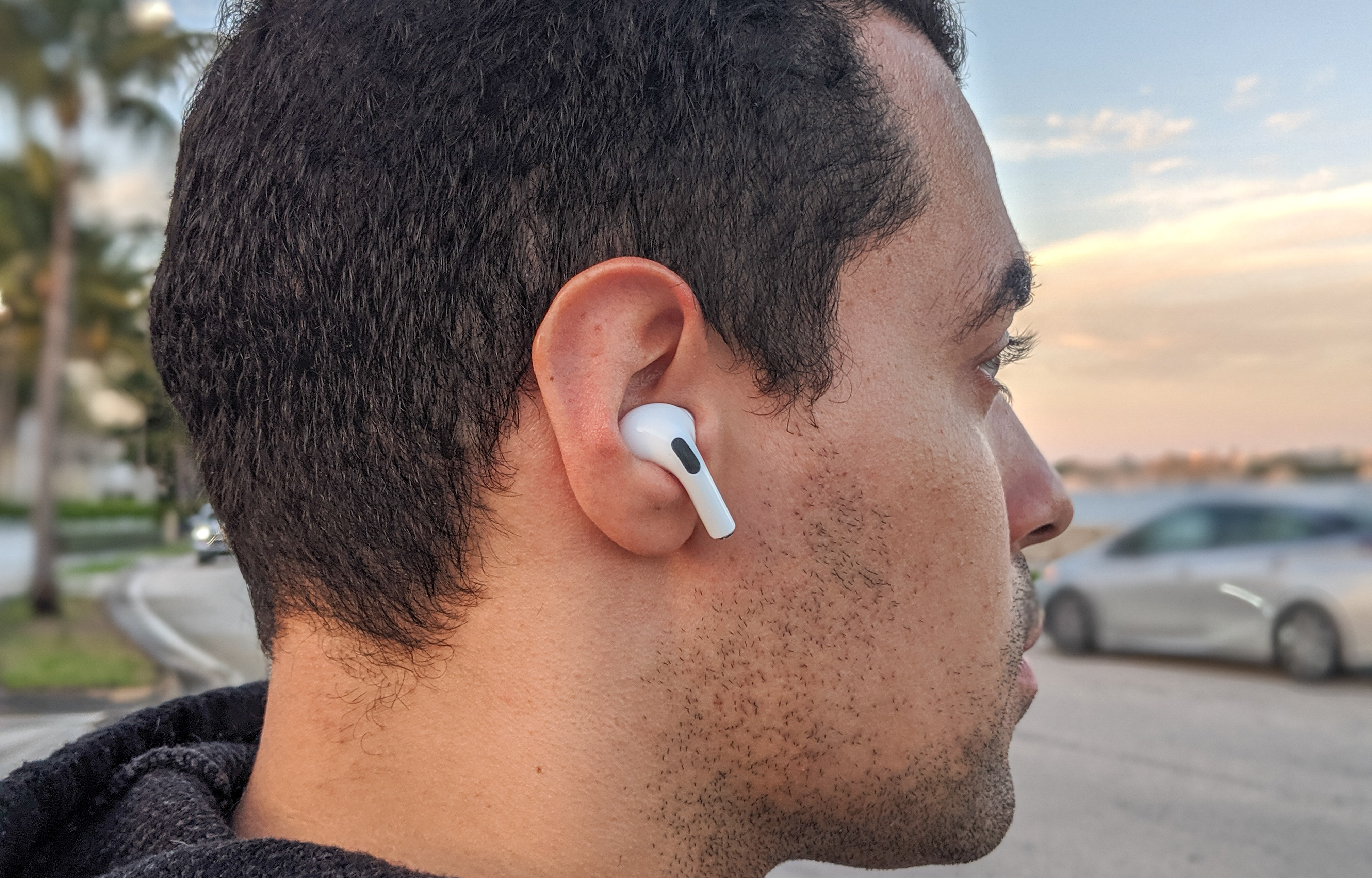
No one thought Apple was capable of creating a solid pair of noise-cancelling wireless earbuds. Well, they proved the haters wrong, creating the absolute best mobile accessory for iOS/macOS devices: the AirPods Pro. The new sweat-proof design looks better and fits more securely in your ear, sound quality has been slightly improved, and the highlight feature — active noise cancellation — effectively reduces ambient sounds (just don’t expect a miracle). We’re also fans of the new force sensors on the stems, which use pinch gestures to execute commands and is more responsive than the tap control scheme employed on previous AirPods models.
With the release of iOS 14 comes new features like automatic switching and spatial audio, which creates a three-dimensional soundscape that gives movies an extra layer of immersion. Add everything we loved about the original AirPods — excellent call quality, seamless pairing, a strong Bluetooth connection, and supreme comfort — and we have no reservations naming the AirPods Pros the best overall wireless earbuds.
See our full AirPods Pro review.
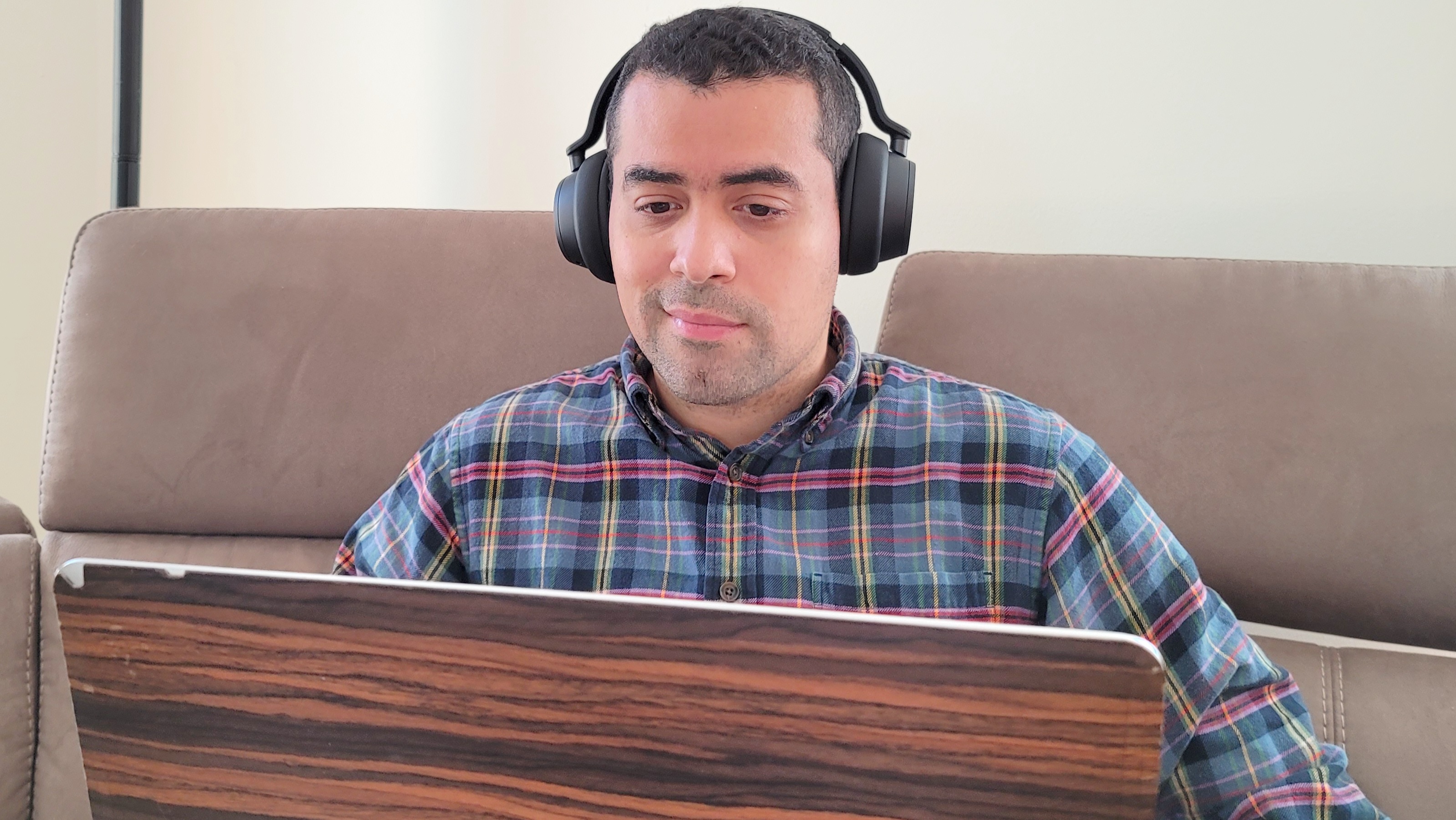
The Microsoft Surface Headphones 2 are amazing work-from-home headphones that don’t skimp on functionality. Using the dials on either earcup makes adjusting ANC and volume levels seamless. Audio is well rounded, giving listeners a nice mix of deep bass and pleasant-sounding mids. Where the headphones really stand out is in their productivity features such as voice dictation for Microsoft 365 to transcribe notes in Office programs (e.g., Word, PowerPoint, Outlook). The Surface Headphones 2 also have the strongest multipoint technology of any model in its class, letting you pair the cans to 10 devices simultaneously, which makes switching between your smartphone and laptop a breeze.
Our only gripes are the low battery life (all that power sucks up a lot of juice) and the lack of extra features in the companion app. Nonetheless, there is plenty of performance afforded to you for $250, a price that’s actually lower than what the original launched for.
Read our full Microsoft Surface Headphones 2 review.
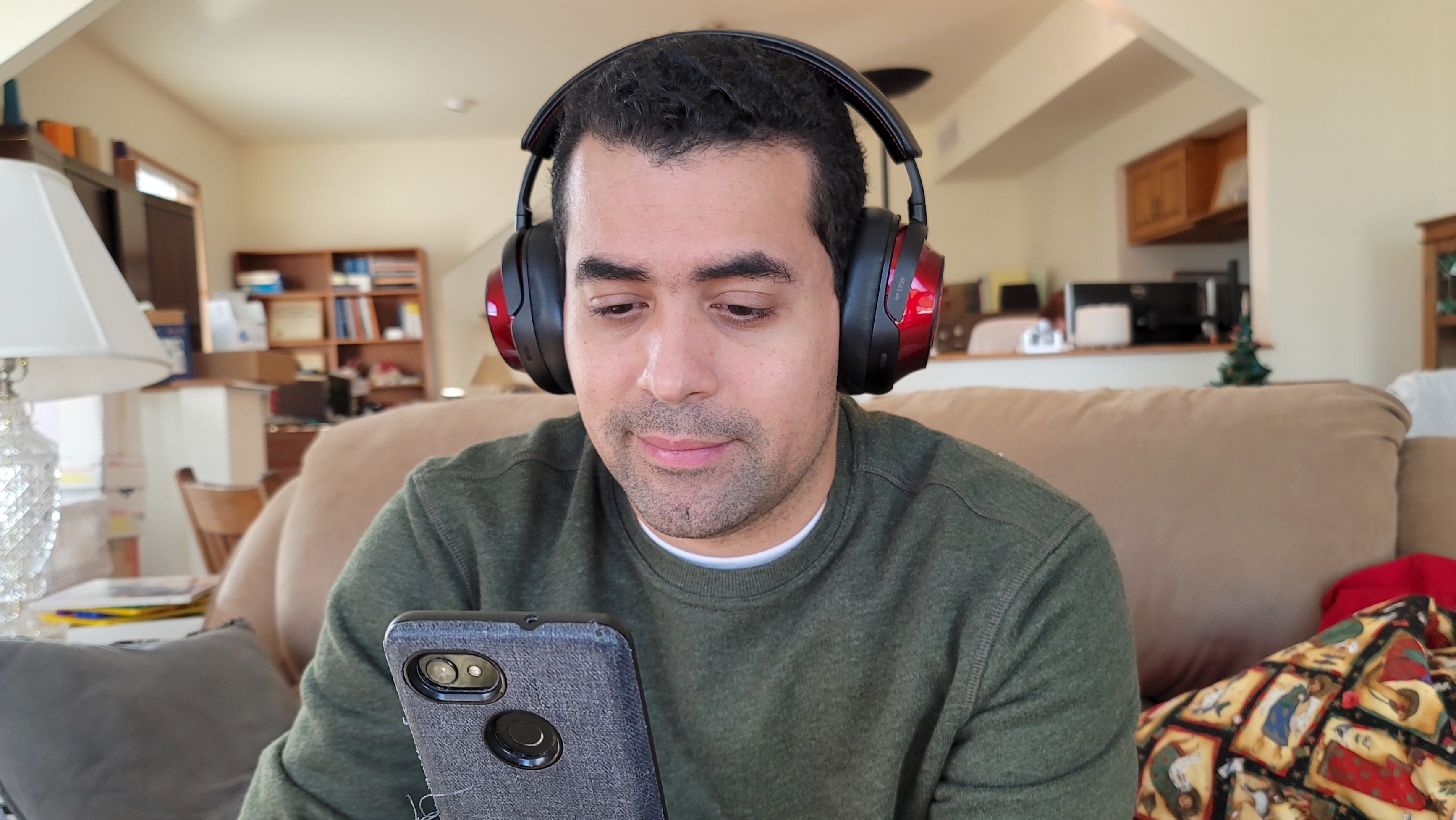
Audiophiles tend to be more open to spending big on headphones that can meet their hi-fi standards. Circum-aural, closed-back headphones usually fill that void, but they come at an extremely high cost (est. $1,000 or higher), plus they lack extended functionality and require a wired connection. The Mark Levinson No. 5909 plays disruptor by delivering similar audio performance and plenty more perks for a similar price.
Underneath the fancy design are 40mm beryllium coated drivers, a metal mesh bass port, and Bluetooth 5.1 with Hi-Res Audio certification for LDAC streaming. The combination gives music a spacious and detailed presence that sounds even better on lossless streaming services (e.g., Tidal, Deezer). Battery life is higher than all Bose noise-cancelling headphones, and speaking of ANC, the No. 5909 can block out external sounds very well for peaceful listening and interruption-free calls.
Read our full Mark Levinson No. 5909 review.
How to choose the best headphones and earbuds for voice and video calls for you
Choosing the best headphones and earbuds for voice and video calls means checking off specific boxes. Bluetooth should be at the top of the list. Nearly every model on our list supports Bluetooth 5.0 or higher, guaranteeing steady wireless performance and lengthy range, so you can walk around wide-open spaces and not worry about dropout. A strong wireless connection also reduces latency, an issue most common during video chats that can mess up lip synchronization.
Strong microphones come next. A great calling headset can pick up every word and ensure callers on the opposite end make out full sentences. ANC is another component (if available) that can greatly enhance call quality by eliminating incidental sounds from chats; the mics block out unwanted noises from the desired signal.
Battery life is another huge factor. Using headphones or earbuds for calls can drain the battery quickly, so it’s on you to select a model that can hold a long charge. The standard battery life for most wireless headphones falls between 20 to 30 hours, while wireless earbuds are rated somewhere between 5 to 7 hours. If you’re going the true wireless route, keep in mind that the charging case is just as vital and should hold no less than 25 hours of additional playtime when fully charged.
Special features can also make all the difference in call quality. Bose and Jabra have unique settings that increase the volume of the caller’s voice to hear conversations better. Other brands program their headphones and earbuds to perform functions like answer, end, or mute calls through voice activation. It doesn’t hurt having these at your disposal.
How we test the best headphones and earbuds for voice and video calls
Our process for testing the best headphones and earbuds for voice and video calls consists of evaluating several factors, including call quality, connectivity, design, sound, and value. Every model is compared to similar ones in their category in terms of features, fit, and pricing.
Headphones and earbuds are worn over the course of a week for 2 to 3 hours daily. During this period, our reviewers assess Bluetooth performance, comfort, ease of use, and audio quality. Our team makes several voice and video calls on different devices, including smartphones, tablets, and laptops. Video conferencing apps such as FaceTime, Google Meets, Microsoft Teams, and Zoom are accounted for.
Once testing is completed, we rate these headphones and earbuds based on our five-point system (1 = worst, 5 = best). Any product that is truly exemplary is awarded an Editor’s Choice.

